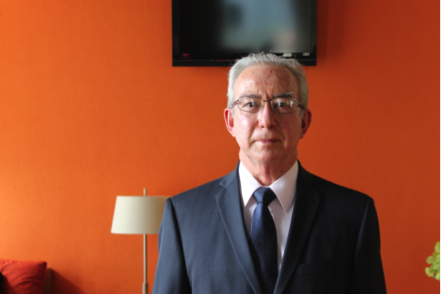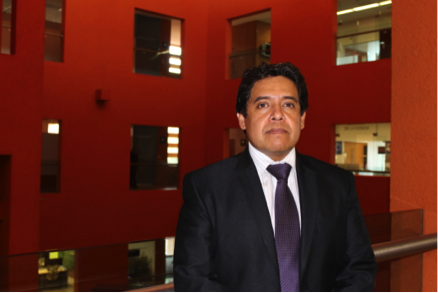![]()
In January 2015, the Case Study Center at EGADE Business School del Tecnológico de Monterrey together with the Case Research Center at Yale School of Management will launch the case study “PEMEX and Bioethanol in Mexico,” the second multimedia and virtual case study that will be offered to all students in the Global Network for Advanced Management, of which EGADE Business School del Tecnológico de Monterrey is a founding member. The first joint case study between Yale SOM and EGADE Business School was “Walmart de México: Investing in Renewable Energy.”

The authors of the case “Pemex and Bioethanol in Mexico,” Dr. Martha Corrales, director of the Case Study Center at EGADE Business School, and Dr. Jaan Elias, director of the Case Study Research Center at Yale School Of Management (SOM), collaborate on the Committee for Cases for GNAM as part of the didactic strategy of offering students cases that reflect the challenges facing managers in a globalized world. Unlike traditional formats, these cases offer material online and in multimedia, including videos, databases, journalistic articles, and other sources which provide a broader vision of the complexity of business situations.
This case will form part of the educational resources used for analyzing decisions in Yale SOM’s Global Network course “Natural Capital: Managing Risks and Capturing Opportunities in Global Resource Systems,” taught by Professor Brad Gentry, director of the Yale Center for Business and the Environment.
The goal of the case study “Pemex and Bioethanol in Mexico” is to have students reflect upon how PEMEX should produce and sell bioethanol, an ecological fuel made from plant alcohol that is used in a mixture with gasoline. This case evaluates the strategy of incorporating ethanol into gasoline from several viewpoints: business model, sustainability, environment, energy, public policy, technological capacity and operational management.

In the context of energy policy, PEMEX seeks to develop bio-fuels as a means to strengthen the energy independence of Mexico, contribute to the environment and promote the development of the rural sector. To this end, the Mexican Energy Ministry has announced a third public bidding for the incorporation of bioethanol into the energy matrix.
Students will explore the ways in which the bioethanol value chain can be developed, and they will also analyze the experiences of other countries such as the United States and Brazil, the countries with the highest production of ethanol and who have already benefited from the development of this industry, particularly in their agricultural sectors, their sovereignty and their energy security.
The case being developed by Dr. Corrales and Dr. Elias will include audiovisual interviews with Efraín Villanueva Arcos, general manager of Sustainability in the Ministry of Energy, Galo Galeano Herrera, general manager of Energy and Extractive Activities in the Ministry of the Environment, Luis Miguel González Camargo, director of Environmental Impact and Renewable Energies of SEMARNAT, Edgar Torres, advisor to the President of PEMEX and Sergio Velasco, advisor to the Vice-president of Sales at PEMEX Refineries, as well as other experts in sustainability, energy and environment, such as Alejandra Elizondo, from the Mario Molina Center, Miguel Valenzuela, a consultant and adviser and managing director of the Lexington Group México and Carlos Ludlow, founding partner and president of the Board of Directors of EOSOL Energy de México.
PHOTOS: The case “PEMEX and Bioetanol in Mexico” will include videos of interviews with experts such as Efraín Villanueva Arcos (top right), general manager of Sustainability in the Ministry of Energy and Luis Miguel González Camargo (lower left), director of Environmental Impact and Renewable Energies of SEMARNAT.
